Elodea Michaux
pondweed, oxygenweed, yankeeweed
Hydrocharitaceae
Egeria, Hemianthus, Hydrilla, Lagarosiphon, Micranthemum, Tonina
America
Elodea canadensis Michx.
E. nuttallii (Planchon) St. John
Elodea callitrichoides (Rich.) Casp. is introduced into Europe and the United States.
E. canadensis is widely distributed on most continents.
E. nuttallii is established in Europe and Asia.
Elodea canadensis is a serious weed in more than 45 countries around the world, where it obstructs waterways and irrigation.
obligate submersedsubmersed:
see submerged
, attached stem plantstem plant:
(n) (a term used in the aquarium and pond plant trade) having an elongate stem (as opposed to a compact stem)
, rooted but often breaking free and floating in mats
Annual or perennialperennial:
(adj) (of a plant) having a life cycle of more than two years
. Stems elongate, branching, some ascending and others stoloniferous and close to substrate. Unbranched adventitiousadventitious:
(adj) of an organ growing where it is not normally expected, e.g., roots growing from a stem
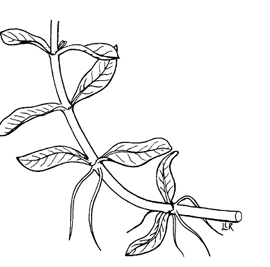 roots produced from basalbasal:
roots produced from basalbasal:
(adj) at or pertaining to the base, or point of attachment
nodes. Leaves in whorls of 3-8, but whorls other than at nodes mostly 3 leaves per whorlwhorl:
(n) three or more similar organs arranged in a circle at the same point around an axis
on well-developed stems. Leaves regularly spaced along stem, condensed near apexapex:
(n) the point farthest from the point of attachment; the tip (often pointed)
, sessilesessile:
(adj) attached directly, without a stalk
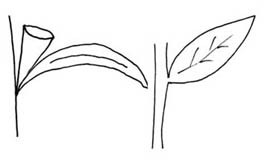 ; leaf bladeblade:
; leaf bladeblade:
(n) (syn. lamina) the flat, expanded part of a leaf, frond, or petal (excluding, e.g., the petiole)
 linear to ob ovateovate:
linear to ob ovateovate:
(adj) egg-shaped in outline; generally with the broad end at or near the base
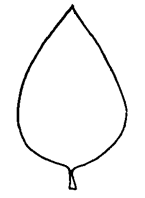 ; marginmargin:
; marginmargin:
(n) edge; rim
entire with fine serrations, finer than Hydrilla, often not visible without magnification. Inflorescenceinflorescence:
(n) the arrangement of flowers on the floral axis
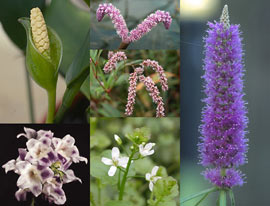 axillaryaxillary:
axillaryaxillary:
(adj) in, of, or produced from an axil
; spathespathe:
(n) a large bract or bracts subtending and often enclosing an inflorescence
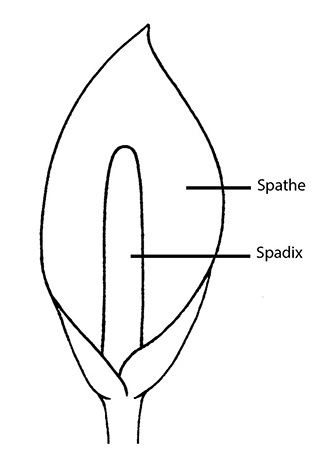 of two united bracts. Flowers unisexualunisexual:
of two united bracts. Flowers unisexualunisexual:
(adj) (of a flower) with either stamens (male) or pistils (female) but not both; consisting of only male or female flowers
; male flowers solitary, floating on water surface, attached to long threadlike pedicelpedicel:
(n) the stalk of a single flower in an inflorescence, or of a grass spikelet
or abscising; female flowers solitary, subsessile but appearing long-pedicellate, opening at water surface; sepals 3; petals 3 (rudimentary or absent in male flowers). Dispersal by seeds, stem fragments or resting turions.
still waters of lakes, streams, and rivers, especially artificial impoundments
Elodea contains six species native to America. Elodea potamogeton (Bertero) Espinosa and E. callitrichoides (Rich.) Caspary are endemicendemic:
(adj) restricted to a certain geographical location
to South America, while E. bifoliata St. John is endemicendemic:
(adj) restricted to a certain geographical location
to North America.